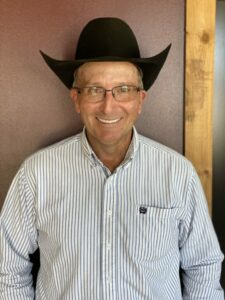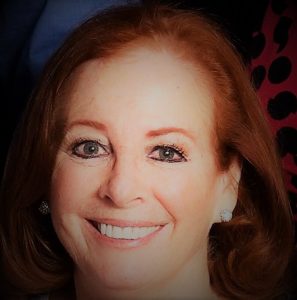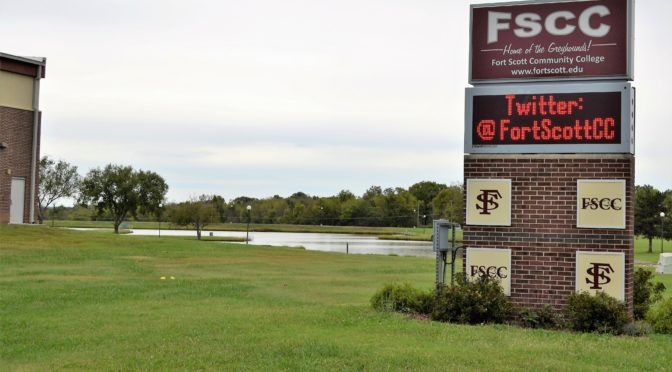Monthly Archives: July 2020
Masks By Pastor James Collins

“Then saith one of his disciples, Judas Iscariot, Simon’s son, which should betray him, Why was not this ointment sold for three hundred pence, and given to the poor? This he said, not that he cared for the poor; but because he was a thief, and had the bag, and bare what was put therein.”
John 12:4-6
When I was a kid, I used to wear a mask. It was a Superman mask. Superman was my favorite hero. When I was seven, I read so many Superman comic books that I really thought I was Superman.
I made a Superman suit. I had a Superman t-shirt, a red bath towel for a cape, and a pair of red Underoos that I wore outside my pants. I completed my costume with a plastic Superman mask from an old Halloween costume. The mask had jet black wavy hair with a j-curl that went down in the middle of the forehead. Without the mask, I was just James. I was a mild-mannered, nerdy little kid. But when I put on my Superman mask, I thought I was the Man of Steel.
One morning, I was sitting in the kitchen eating Fruity Pebbles out of a plastic butter bowl. I was wearing my Superman outfit. I lifted the mask to get a bite of cereal and put it back down to chew. In my mind, Superman was having breakfast.
While I was eating, I was also reading a Superman comic book. I don’t know if it was the comic book, the sugary Fruity Pebbles, or a combination of both, but I got all excited and believed that I was Superman. I took off running through the house. I was faster than a speeding vacuum cleaner. More powerful than the dog. Able to leap coffee tables in a single bound. Look! Up on the kitchen counter. It’s a toaster. It’s a microwave. No. It’s a kid in a mask who thinks he is Superman!
I went running through the house. As I jumped over the table in the living room, I knocked off a lamp. It fell off the table and shattered to pieces.
Momma had told me a hundred times not to run in the house. So, the consequence was a spanking. Momma was about to spank me when I said, “Wait.” I took off my Superman mask, bent over, and said, “Okay, now.” I needed to take off the mask because Superman never got a whipping. You must think like a seven-year-old kid to understand this, but when I put on that mask, I was Superman.
Sadly, many grown intelligent adults do the same thing. They wear a mask. The Bible tells us about a man named Judas. He was one of the disciples of Jesus. But he wore a mask. His mask concealed the truth. His mask hid his true identity.
The point is: It is better to live naked in truth than clothed in fantasy.
What sort of mask of untruth are you wearing?
What are you hiding behind your mask?
James Collins is the pastor of First Southern Baptist Church. Follow him on Twitter @collins_point, Facebook James Collins “The Point Is,” or at the website thepointis.net.
Seven New Cases of COVID 19 Yesterday Total
Two New Cases Of COVID 19 on July 3 In Bourbon County
On July 3, Bourbon County had two new positive COVID-19 cases today, Rebecca Johnson, Bourbon County Health Officer said.
One individual is symptomatic and the other is not.
One individual is a contact of a previously listed case and the other is not.
The investigations are complete.
Please use good judgment and protect yourself and those you’re in contact with.
Coach Chad Cross: Rodeo Coach of the Year

Fort Scott Community College’s Chad Cross was given the National Intercollegiate Rodeo Association (NIRA) Central Plains Region Coach of the Year award on June 3.
“Typically, they would present the award at the last college rodeo of the season, but due to the last rodeos being canceled, the elections and presentations were done online,” Cross said.
Rodeos were canceled because of the COVID 19 pandemic.
“The award is voted on by other coaches and athletes within the central plains region – over 16 member schools consisting of junior colleges and universities across Oklahoma and Kansas,” Cross said.
Cross has been head rodeo coach for 24 years at FSCC.
“We have 50-55 students each year, Cross said. “We have every college rodeo event.”
His duties and responsibilities include advising students, coaching or helping coach each event, feeding stock, and more, he said.
“Mainly continuing to make sure that our students are bettering themselves in life, school, and rodeo,” Cross said.
“The best part of coaching for me is seeing students succeed in what they are passionate about and getting to be a small part of that, whether that be in the arena or life,” he said.
Count Your Blessings by Patty LaRoche

Happy Fourth of July! Today, I sit on my deck, recovering from the Covid-19 virus, grateful that I live in a small town in the Midwest where friends and neighbors have gone out of their way to bring food and run errands. One lake neighbor dropped off chocolates and Twizzlers and flowers on our steps while another, on his drive from Kansas City to Tulsa, stopped to shop for items we needed, including a miracle-find of Clorox Wipes. Pam, my Utah friend, called her homeopathic guru and over-nighted me herbs and vitamins. Cards have arrived, and daily, friends and family members text, asking about my improvement. Many have phoned Dave, my husband, when it was difficult for me to maintain any breath control to speak.
I can’t say enough about Dave. He has been a saint. I was quarantined to the basement for 14 days. Dave made sure I had a thermometer and an oxygen reader, and even though I had no taste buds, I never was without a plate of fruit (a wonderful, stocked refrigerator treat from our Stilwell friends). When I progressed to being able to walk up the stairs and sit on the deck, he stayed a step behind me to steady my walk, brought me blankets and disinfected the area.
All of those were wonderful blessings, but what has touched me the most has been the out-pouring of prayers. Oh, how I relied on those prayers! When I would cough so hard I thought my lungs would explode, when I would chill and sweat and be incapable of taking a deep breath, when every bone ached, when I was so unsteady I could barely make it to the bathroom, I remembered the prayer-warriors who were lifting me up.
And so, today I sit on my deck, taking time to thank a mighty God who, it seems, is not calling me Home quite yet. He is calming my normally-frantic brain and causing me to concentrate on the beauty of life. I am blessed to watch as three fishermen, unaware they are in my eyesight through our deck rails, patiently row around our dock, casting their lines in various directions, enjoying the moment, even though no fish are biting. Two squirrels, playing “tag” for the past hour, have found my peanut feeder and leave not a shell for their friends. Birds, hidden in the cascade of overgrown tree limbs, noisily chatter while a butterfly comes near enough for me to touch it. A sweet visit.
But then 14 geese, determined to visit every morning and leave their “mess” on our newly-concreted sidewalk, show up to eat the grass seed we planted a few weeks ago. Dave makes the walk to our dock, waving frantically to run them off. With their ruffled feathers, they honk and jump into the lake, but it is only a matter of time before they return. Life, as we all know, is not perfect. But a small town in the Midwest comes close.
In a few days, the lake will be a place of celebration as jet-skis and boats and campers come for a day of recreation and entertainment. Fireworks will be shot from docks, music will blare, and we all will be reminded of those whose sacrifice proved just how “unfree” freedom really is. This year, we small-towners have much to be thankful for. Here, we don’t have to worry that our shopping areas will be taken over by misdirected rioters who set up camp and intimidate gutless, city officials into acquiescing to their desires. Here, parents of toddlers playing in the front yard or youngsters watching television don’t have to guard against flying bullets. Here, store owners don’t need to plywood the windows on their stores or protect against thieves helping themselves to whatever loot they can carry away. Here, the American flag is revered, not burned.
Let us count our blessings, and even though there always are reminders (like unwanted geese) that small-town life might not be perfect, I imagine that most of us wouldn’t live anywhere else.
The Fort Scott Police Department Daily Reports July 2
Click below:
‘Notice of Loss’ for Failed, Prevented Planted Acres
USDA Announces Flexibilities for Producers Filing ‘Notice of Loss’ for Failed, Prevented Planted Acres
WASHINGTON, D.C., July 2, 2020 – The U.S. Department of Agriculture (USDA) is providing additional flexibilities for producers to file on acres with failed crops or crops that were prevented from planting because of extreme weather events. USDA’s Farm Service Agency (FSA) is adding these flexibilities for Notice of Loss on both insured and uninsured crops to enable Service Centers to best assist producers.
“With many program deadlines approaching, our Service Centers are working hard to accommodate as many producer appointments as possible,” said FSA Administrator Richard Fordyce. “By providing flexibilities to our Notice of Loss policy, we can ensure we provide the best customer service.”
Filing for Prevented Planted Acres
For insured crops, producers who timely filed a prevented planted claim with the reinsurance company but filed a Notice of Loss (CCC-576) form after the deadline will be considered timely filed for FSA purposes. FSA can use data from the Risk Management Agency (RMA) for accepting the report of prevented planting with FSA. If the information is not available through RMA, the producer may also provide proper evidence to FSA that the prevented planted claim was timely filed with the reinsurance company.
For uninsured crops, producers may start a Notice of Loss (CCC-576) by calling their FSA county office, or they may print and complete the Notice of Loss (CCC576) form from home and send to their county office. For prevented planted acreage, Notice of Loss forms mailed to the FSA office must be postmarked by the final acreage reporting date in the county to be considered timely filed. For all prevented planted cases, the Report of Acreage (FSA-578) form and the completed and signed Notice of Loss (CCC-576) must be filed by the applicable acreage reporting date.
Filing for Failed Acres
For failed acreage of uninsured crops, the Notice of Loss (CCC-576) must be completed, signed and verified before the disposition of the crop.
When to File a ‘Notice of Loss’
A Notice of Loss cannot be filed for a crop before the final planting date, but it can be filed before completing the crop acreage report.
Producers who miss FSA’s July 15 acreage reporting deadline will not face a late filing fee if filed within a month of the deadline.
For questions, please contact your FSA county office. To locate your FSA county office at your Service Center, visit farmers.gov/service-center-locator.
All USDA Service Centers are open for business, including some that are open to visitors to conduct business in person by appointment only. All Service Center visitors wishing to conduct business with FSA, Natural Resources Conservation Service or any other Service Center agency should call ahead and schedule an appointment. Service Centers that are open for appointments will pre-screen visitors based on health concerns or recent travel, and visitors must adhere to social distancing guidelines. Visitors may also be required to wear a face covering during their appointment. Field work will continue with appropriate social distancing. Our program delivery staff will be in the office, and they will be working with our producers in office, by phone and using online tools. More information can be found at farmers.gov/coronavirus.
#
USDA is an equal opportunity provider, employer, and lender.
USDA Reminds Kansas Producers to Complete Crop Acreage Reports
(Manhattan, Kansas), July 2, 2020 – USDA’s Farm Service Agency (FSA) reminds Kansas producers to complete crop acreage reports by the applicable deadline for their county. Acreage reporting dates vary by crop and by county. Contact your FSA county office for a list of acreage reporting deadlines by crop.
“To make sure you’re eligible for many USDA programs, you need to file an accurate crop acreage report by the applicable deadline,” said David Schemm, State Executive Director in Kansas. “Our FSA staff is standing by to help you with your acreage reports, including providing maps.”
The final acreage reporting date for Kansas is July 15 and includes spring-seeded small grains, feed grains, soybeans, and perennial forage.
Due to the pandemic, FSA has implemented acreage reporting flexibilities. FSA can work with producers to file timely acreage reports by phone, email, online tools and virtual meetings if needed.
The following exceptions apply to acreage reporting dates:
- If the crop has not been planted by the acreage reporting date, the acreage must be reported no later than 15 calendar days after planting is completed.
- If a producer has not timely filed an acreage report, the producer may file the acreage report within 30 days of the acreage reporting date. Because of the pandemic, late fees will be waived if filed within the 30 days.
FSA is also providing additional flexibilities for producers to file on acres with failed crops or crops that were prevented from planting because of extreme weather events. For insured crops, producers who timely filed a prevented planted claim with the reinsurance company but filed a Notice of Loss (CCC-576) form after the deadline will be considered timely filed for FSA purposes. For uninsured crops, producers may start a Notice of Loss by calling their FSA county office.
Noninsured Crop Disaster Assistance Program (NAP) policy holders should note that the acreage reporting date for NAP-covered crops is the earlier of the dates listed above or 15 calendar days before grazing or harvesting of the crop begins.
When producers are working with FSA staff – either in-person or virtually – they can also take care of applications for other FSA programs, including the Coronavirus Food Assistance Program. A CFAP Call Center is available for producers who would like additional one-on-one support with the CFAP application process. Please call 877-508-8364 to speak directly with a USDA employee ready to offer assistance. The CFAP Call Center can provide service to non-English speaking customers. Customers will select 1 for English and 2 to speak with a Spanish speaking employee. For other languages, customers select 1 and indicate their language to the Call Center staff.
Applications can also be submitted for the Wildfire and Hurricane Indemnity Program Plus for 2018 and 2019 as well as other disaster assistance programs that may be able to assist producers at this time.
For questions, please call your FSA county office. To locate your local FSA office visit farmers.gov/service-center-locator.
All USDA Service Centers are open for business, including some that are open to visitors to conduct business in person by appointment only. All Service Center visitors wishing to conduct business with FSA, Natural Resources Conservation Service or any other Service Center agency should call ahead and schedule an appointment. Service Centers that are open for appointments will pre-screen visitors based on health concerns or recent travel and visitors must adhere to social distancing guidelines. Visitors may also be required to wear a face covering during their appointment. Field work will continue with appropriate social distancing. Our program delivery staff will be in the office, and they will be working with our producers in office, by phone and using online tools. More information can be found at farmers.gov/coronavirus.
#
USDA is an equal opportunity provider, employer, and lender.
Local Health Officer Comments on Governor’s Recommendations For Masks
Governor Laura Kelly Signs Executive Order Mandating Masks in Public Spaces
Executive Order #20-52 takes effect beginning 12:01 a.m. Friday, July 3, and will remain in place until rescinded or until the current statewide State of Disaster Emergency expires – whichever is earlier.
“The last few months have presented many new challenges for Kansans, and all of us want to return to our normal lives and routines,” Governor Kelly said. “Unfortunately, we have seen a spike in the number of COVID-19 cases, hospitalizations, and deaths across our state and our country. We must act.”
Viruses don’t stop at county lines. This order doesn’t change where you can go or what you can do. But wearing a mask is a simple and effective way to keep Kansans healthy and keep Kansas open for business.”
Under the order, Kansans are required to wear masks when inside any public space – including their workplace – or in situations where social distancing of 6 feet cannot be maintained. Guidance regarding specific places or situations in which masks are required is outlined within the order.
Kansans under five years of age, those with medical conditions, and others specifically outlined in the order are exempt from these requirements.
To view EO #20-52, click here.
Traveling To Kansas Lakes?
Public Health Advisories for Kansas Lakes Due to Blue-Green Algae
Four warnings, seven watches in effect
TOPEKA – The Kansas Department of Health and Environment (KDHE), in conjunction with the Kansas Department of Wildlife, Parks and Tourism (KDWPT), has issued its list of public health advisories for Kansas lakes due to blue-green algae. The watch that had been issued for Kanopolis Reservoir in Ellsworth County has been lifted; it is no longer under advisory.
Warning
Cheney Lake, Reno/Kingman/Sedgwick Counties (upgraded to warning)
Gathering Pond at Milford Reservoir, Geary County
Peter Pan Pond, Lyon County
Marion Lake, Marion County
Watch
Mission Lake, Brown County
Lake Perry Zone C and Zone D, Jefferson County
Rock Garden Pond, Shawnee County
Washington County State Fishing Lake, Washington County
Lovewell Reservoir, Jewell County
Marion Reservoir, Marion County
Norton Lake (Sebelius), Norton County (new)
Warning Protocols
When a warning is issued, KDHE recommends the following precautions be taken:
- Lake water is not safe to drink for pets or livestock.
- Lake water, regardless of blue-green algae status, should never be consumed by humans.
- Water contact should be avoided.
- Fish may be eaten if they are rinsed with clean water and only the fillet portion is consumed, while all other parts are discarded.
- Do not allow pets to eat dried algae.
- If lake water contacts skin, wash with clean water as soon as possible.
- Avoid areas of visible algae accumulation.
Watch Protocols
A watch means that blue-green algae have been detected and a harmful algal bloom is present or likely to develop. People are encouraged to avoid areas of algae accumulation and keep pets and livestock away from the water.
During the watch status, KDHE recommends the following precautions be taken:
- Water may be unsafe for humans/animals.
- Avoid areas of algae accumulation and do not let people/pets eat dried algae or drink contaminated water.
- Swimming, wading, skiing and jet skiing are discouraged near visible blooms.
- Boating and fishing are safe. However, inhalation of the spray may affect some individuals. Avoid direct contact with water, and wash with clean water after any contact.
- Clean fish well with potable water and eat fillet portion only.
KDHE investigates publicly-accessible bodies of water for blue-green algae when the agency receives reports of potential algae blooms in Kansas lakes. Based on credible field observation and sampling results, KDHE reports on potentially harmful conditions.
FSCC COVID 19 Update
FSCC COVID-19 Update 07.02.2020

Ensuring the health and safety of our FSCC students, faculty, staff, and community is my top priority. Requiring masks and social distancing is the most effective way to protect each other and help keep FSCC open for business. Beginning July 6, 2020, masks will be required for all individuals who are in a FSCC building, or when social distancing cannot be accomplished, at all FSCC locations. Please keep in mind we need to be respectful of the fact we have individuals who are vulnerable, and/or they have family members who are at grave risk, if they contract the virus.
The situation concerning the spread of the COVID-19 virus and how counties, states, school districts, and colleges will handle it, changes every day. We must remain flexible due to the evolving nature and scope of this public health emergency. Below are a few guidelines brought forth by our executive team as we plan to move forward with classes and complete opening of all FSCC locations.
COVID-19 Mitigation Return to Work Plan
1. Amended Start and End Date for Fall, 2020 Semester:
- In-service will be one day only – August 7, 2020. Classes will begin August 10, 2020. The semester will end November 24.
2. Face Masks and Social Distancing Required:
- All individuals on FSCC campus, at all locations, will be required to wear a face mask while in buildings. Individuals should social distance in hallways and common areas.
4. Illness:
- If you feel sick, or are experiencing symptoms of COVID-19, please stay home and consult your health care professional.
5. Follow CDC Guidelines for Prevention:
- Wash your hands often with soap and water for at least 20 seconds especially after you have been in a public place or after blowing your nose, coughing, or sneezing.
- If soap and water are not readily available, use a hand sanitizer that contains at least 60% alcohol. Cover all surfaces of your hands and rub them together until they feel dry.
- Avoid touching your eyes, nose, and mouth with unwashed hands.
- No contact greetings (no handshakes, hugging, etc.).
- Avoid close contact with people who are sick.
- Stay home when you are sick.
- Cover your cough or sneeze with a tissue, then throw the tissue in the trash.
6. Classroom/Lab/Common Area Sanitation:
- Hand sanitizer will be available in all classrooms and common areas. Classrooms, labs, and common areas will be sanitized utilizing electrostatic sanitation equipment a minimum of once daily. The FSCC cafeteria will be sanitized after each meal. College fleet vehicles will be sanitized following each use.
7. Travel & Exposure Related Isolation/Quarantine:
- Those who have traveled to the following locations need to quarantine for 14 days after arrival in Kansas. This applies to both Kansas residents and those visiting Kansas (locations requiring quarantine upon return are subject to change):
- Alabama
- Arizona
- Arkansas
- Florida
- South Carolina
- Cruise ship or river cruise passengers
- International travelers
8. Institutional Travel:
- All institutional travel must be deemed essential to college operations and approved by the appropriate Vice President or President.
9. Teaching Methods:
- Instructors should provide all instructional materials and assignments on Blackboard.
- All classes will be hybrid and students will be expected to check Blackboard frequently
- Exams, quizzes, and daily assignments are encouraged to be completed in the online modality to reduce exposure.
- Group work is discouraged in the classroom without appropriate social distancing. Faculty are asked to utilize the LMS (Blackboard) for group learning and projects.
- Faculty are encouraged to update their absence policies in syllabi to reduce penalties for missing class due to illness, isolation, or precautions related to COVID-19 exposure.
- Proctoring online assignments/exams is discouraged (no in-person proctoring requirements) as Respondus has removed the unlimited usage availability.
- Attendance must be taken within Campus Connect for every course meeting in the face to face modality. This will allow for contact tracing in the event of a positive test.
This guidance is subject to change without notice.
Stay safe and healthy,
Alysia Johnston, FSCC President


